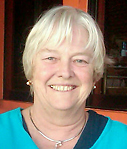
Why do girls hesitate to become engineers? Why do boys who become nurses face disapproval? Because of gender and racial stereotypes and their influence on individual choices, says Jacquelynne Eccles, the Wilbert McKeachie and Paul Pintrich University Professor of Psychology and Education.
Eccles, an expert on gendered patterns of educational and occupational choices, will discuss forces that influence career choices when she delivers her Distinguished University Professor lecture, “Two Roads Diverged in a Yellow Wood,” at 4 p.m. March 14 in the Rackham Ampitheatre.
Distinguished University Professor is the highest professorial title granted at U-M. A reception will follow the lecture, which is free and open to the public.
Eccles has studied the ways school, family and community structural characteristics influence adolescents’ and young adults’ engagement in school, work and avocations, as well as their mental health. She also has examined how personal and collective identities relate to individual life choices.
In her lecture, Eccles will discuss the under-representation of women in the physical and engineering sciences to illustrate the social and psychological processes associated with key life choices. She also will examine how Americans end up in educational programs and occupations they don’t like and how it affects them.
“We have norms and social structures attached to gender and race and these ideas are attached to people,” Eccles says. “These images are ingrained in the culture and show up on television. They tell young children what they should do.”
The scarcity of women engineers is an example of this, Eccles says. Although girls, who often choose a profession where they can help someone, are entering careers in medicine and the biological sciences, they avoid engineering.
“Engineers do help people and schools must counter that stereotype,” Eccles says. “When sexy forensic scientists showed up in the ‘CSI’ television series, the numbers of girls interested in that profession jumped. They saw it as a profession where they can help someone. But they found out it’s not the way it’s portrayed on television and ended up in a profession they didn’t like.”
Parents and society need to give children accurate information so they can make informed decisions about life choices, Eccles says.
“We can start in grade school with simulated experiences on the Internet,” she says. “We also must give parents better so they can counsel their children.”
Eccles joined the U-M faculty in 1977. She has served as assistant vice president for research, chair of the Combined Program in Education and Psychology, and as acting chair of the Department of Psychology.

